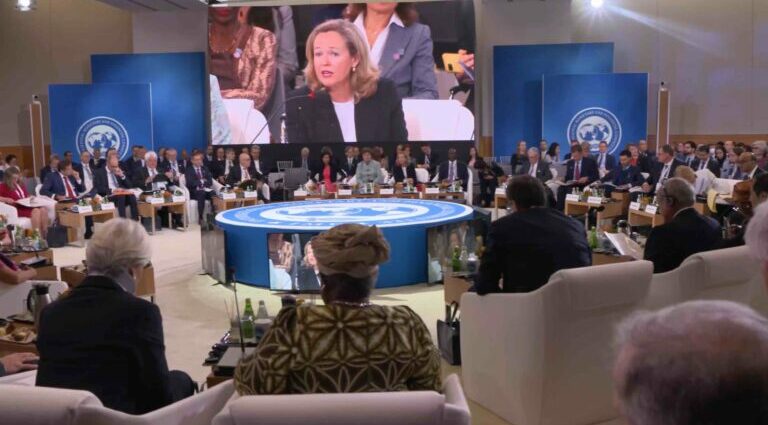In a speech delivered on June 19, 2023, in Rabat, Morocco, Tobias Adrian, Financial Counsellor and Director of the Monetary and Capital Markets Department at the International Monetary Fund (IMF), presented a compelling vision for the future of cross-border payments. He outlined a blueprint for a new class of payment and contracting platforms that could revolutionize how we transact globally.
Adrian began his speech by highlighting the importance of money as the financial system’s foundation. He noted that technology presents an opportunity for money to evolve in today’s digital age. Banks and central banks worldwide are exploring cryptography, tokenization, and programmability to improve money, aiming to offer a form of money that can sit alongside our messaging apps, work efficiently, and be even safer.
The core of Adrian’s speech was the introduction of a new concept: cross-border and domestic payments and contracting platforms, or XC platforms. These platforms, he explained, would be like digital town squares where people and businesses meet to transact under the watchful eye of the local authorities. The vision is for a trusted ledger, an electronic document representing property rights on which digital versions of central bank reserves in any currency can be traded among participants.
Adrian broke down the XC platforms into three layers: the settlement, the programming, and the information management layers. The settlement layer would settle money denominated in many different currencies using the safest possible forms of money – central bank reserves. The programming layer would allow for basic financial contracts to be customized and exchanged safely and efficiently. The information management layer would manage information flows to overcome economic frictions.
The XC platforms, Adrian argued, would offer key advantages. They would ensure safety by settling with central bank reserves, offer interoperability among national currencies, bring innovation, efficiency, and safety in contracting, help manage information flows, and rest on transparent, rule-based governance consistent with the stability of the international monetary system.
While XC platforms are designed with cross-border payments in mind, Adrian suggested that their basic design is sufficiently general also to help domestic financial systems. He introduced the concept of CBDC platforms, the domestic equivalent to XC platforms, which would be backed by strong legal and regulatory frameworks. As money, CBDCs provide safety. As infrastructure, CBDCs bring interoperability and efficiency among private networks for digital money and assets.
Adrian concluded his speech by emphasizing that as innovation tugs ahead and payments evolve, the public sector, too, must consider renewing its infrastructure. He acknowledged that more work would be needed in testing architectures and technology, especially on legal underpinnings and governance arrangements. However, he expressed optimism about the potential of these new platforms to improve domestic and cross-border payment systems while continuing to pursue public policy objectives such as financial and monetary stability.
Featured Image Credit: IMF
Source: Read Full Article
-
Google, OpenAI, Microsoft form ‘Frontier Model Forum’ to regulate AI development
-
Chainlink Price Prediction For September: Buy LINK Now?
-
El Salvador and Switzerland Are Working to Boost Crypto Adoption
-
Crypto assets to become a separate category in UK tax forms
-
Prosecutors Claim Sam Bankman-Fried Tried To Influence Witness’ Testimony

